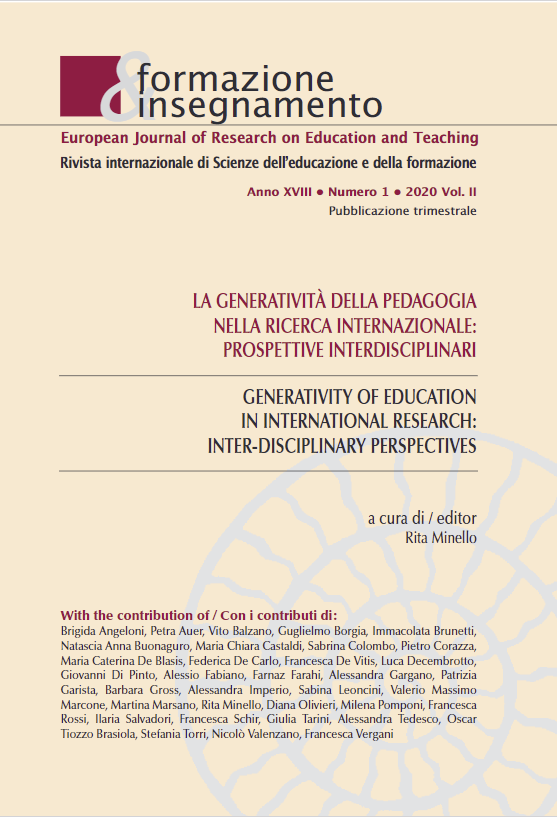Educare a pensare criticamente nella scuola primaria: risultati preliminari da uno studio empirico
DOI :
https://doi.org/10.7346/-fei-XVIII-01-20_52Résumé
Questo articolo descrive il quadro epistemologico, teorico e metodologico di uno studio empirico sullo sviluppo della capacità di pensiero critico negli studenti delle scuole elementari. Il pensiero critico è stato riconosciuto in tutto il mondo come una competenza chiave per l’esercizio della cittadinanza attiva. Il disegno di questa ricerca prevede un intervento biennale in 12 classi sperimentali e di controllo (classi II-III e IV-V) nella regione Friuli Venezia Giulia. Gli insegnanti hanno candidato le loro classi a prendere parte al progetto attraverso un questionario a livello regionale, volto a studiare gli approcci didattici più implementati. Dopo una formazione docenti su uno dei framework di apprendimento esistenti per la promozione del pensiero (TASC - Thinking Actively in a Social Context, di B. Wallace), gli insegnanti stanno utilizzando l’approccio nelle loro classi con il continuo supporto del ricercatore. Una prova appositamente costruita è stata utilizzata come valutazione iniziale e intermedia delle performance degli studenti, in termini di dialogo e disposizioni sul pensiero critico. La valutazione finale avrà luogo in aprile 2020. Il presente articolo affronterà e discuterà del disegno della ricerca e dei risultati preliminari dello studio.
Téléchargements
Publié-e
Comment citer
Numéro
Rubrique
Licence
(c) Tous droits réservés Pensa MultiMedia 2020

Cette œuvre est sous licence Creative Commons Attribution 4.0 International.
Formazione & insegnamento est distribué sous licence Attribution 4.0 International (CC BY 4.0).
Pour plus de détails, veuillez vous référer à notre Politique de dépôt et d’archivage ainsi qu’à nos Conditions de droits d’auteur et de licences.





